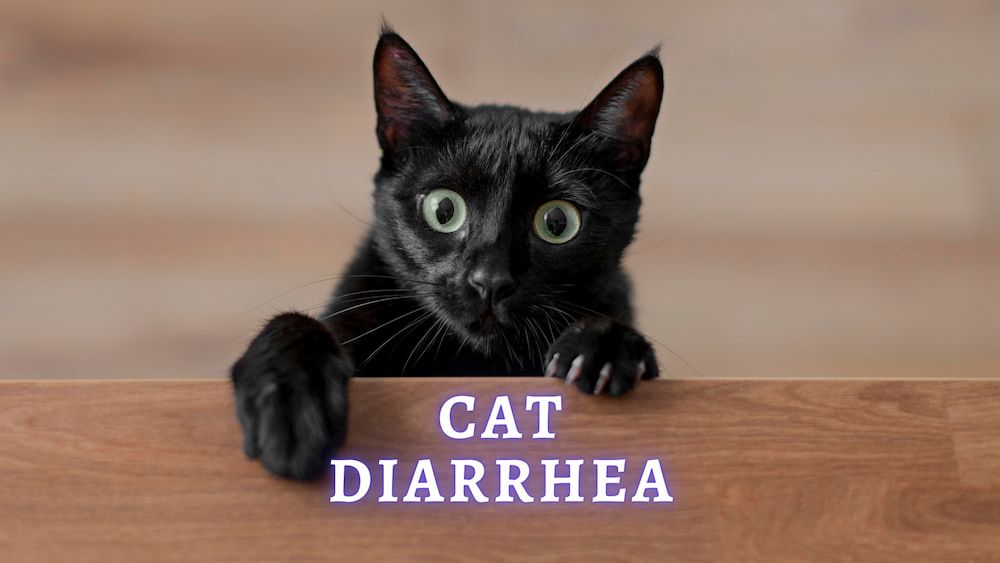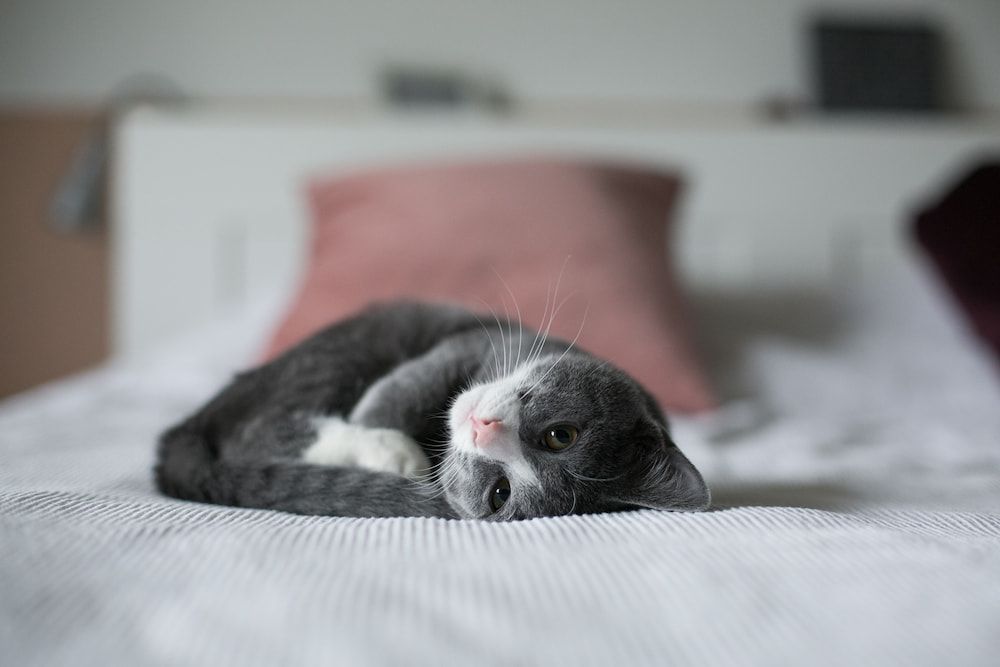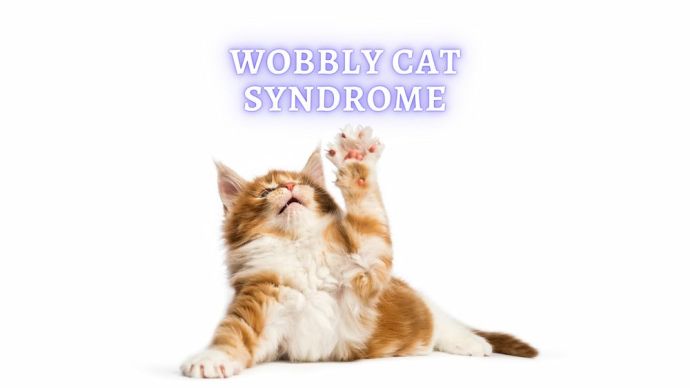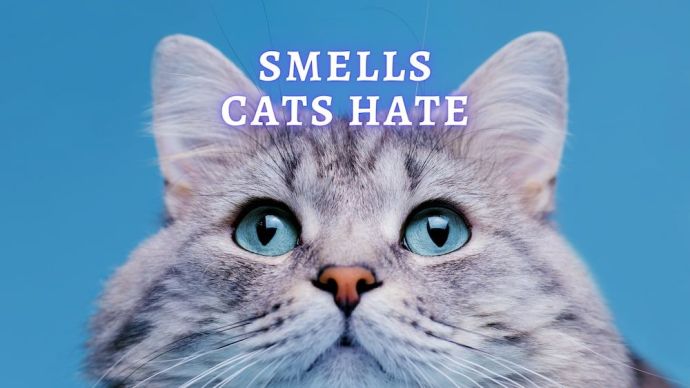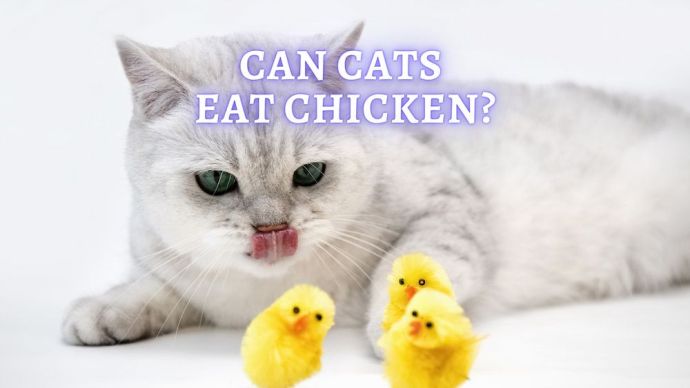Cat Diarrhea: Causes, Symptoms & Treatment (Vet Approved Advice)
Written by:
Author: Vicki Smirnova
Vicki Smirnova is a professional writer and editor who adores animals and helps readers get along well with their pets. She has been working in digital media for more than 5 years and has great experience writing content about lifestyle, including pets. Vicki specializes in dog health and nutrition, cat feeding, dog training. She is an aquarium lover and is passionate to write about fish care at home. Also, Vicki headed several websites and worked as a news editor.
View all 244 articlesLearn about our editorial process and veterinary review board.
Reviewed by:
Veterinary review
by Dr. Linda Simon
Dr. Linda Simon is a veterinary surgeon working with seven years of experience. She is a fellow of the British Veterinary Association and specializing in animal medicine. Also, she has been the Woman magazine resident vet for the past two years and writes a regular column for them, focusing on pets and their health.
View all 30 articlesLearn about our veterinary review board
Viewed: 85
Updated on: 06/15/2023
Many diseases and malfunctions of the gastrointestinal tract of animals are accompanied by diarrhea. Millions of pet owners face this problem every year. If your pet has diarrhea, we recommend that you take this problem seriously and monitor your pet closely. When diarrhea is accompanied by other signs or long-lasting, this can be a sign of an underlying medical issue that needs vet attention. Diarrhea in a cat is not a specific sign and can occur with a number of diseases and pathological conditions that require veterinary treatment.
Types of Cat Diarrhea
Diarrhea is characterized as loose stools. It can happen suddenly (acute diarrhea) or on an ongoing basis (chronic diarrhea).
The color and texture of the feces can sometimes be an indication as to the cause of diarrhea. For example, large intestinal diarrhea is often accompanied by mucus and fresh blood.
The color of the feces can also provide some clues towards the causes of diarrhea:
- Green diarrhea may be due to recent grass eating, or a disorder of the bile system or liver.
- Black diarrhea is characteristic of an increased level of iron in the body (excessive consumption of raw meat or iron-containing drugs). Also, black diarrhea can be a sign of internal bleeding in the stomach or intestine, in which case you should definitely seek veterinary help.
- White diarrhea indicates problems associated with the biliary tract. In this case, a visit to the veterinarian is mandatory, as problems with the liver are possible. We can also see white diarrhea if a cat has eaten something they should not have, such as a chalky material, or if the cat has a Giardia infestation.
It is important to identify that there is an issue and to start a treatment plan. Identifying the cause of your cat’s diarrhea is the first step to figuring out how to stop it. [1]
Why do Cat Get Diarrhea?
Diarrhea in a domestic cat can be caused by various reasons. Often diarrhea occurs if the cat has eaten something unusual. The transition from one food to another is best done slowly over the course of a week, gradually adding more of the new food and leaving less of the old. This approach allows the pet’s digestive system to adapt and reduces the likelihood of diarrhea.
If the owner of the cat cannot independently identify the cause of diarrhea, it is advisable to seek the advice of a specialist. If concerned, the clinic may run some tests such as a stool analysis and blood test and the veterinarian will examine and palpate the animal, check their temperature, and collect all the information about the behavior of the cat. To rule out intestinal obstruction, pancreatitis, peritonitis and other inflammatory diseases, your vet may suggest an abdominal scan.
Causes of Diarrhea
- Diet change. When switching to a new food, it is imperative to do this in several stages. Gradually mix the new food into the old one, increasing the amount. This will allow the cat’s digestive system time to adjust and can prevent negative reactions to the new food.
- Low-quality food. Many commercial pet foods contain ingredients that provide no benefit to cats. Talk to your veterinarian and ask him what food is best for your pet.
- Food intolerance and food allergy. Often pet owners do not recognize an allergic reaction to a food. For example, there is a common misconception about the benefits of milk. Milk for good assimilation should correspond to the species (i.e. kittens – cat’s milk, etc.). Cats do not have the enzymes needed to break down the sugar found in cow’s milk. Feeding cats milk from other animals puts them at high risk of developing secondary problems such as vomiting and diarrhea.
- Foreign bodies in the intestine. This can cause intestinal obstruction, with diarrhea sometimes accompanied by vomiting.
- Bacterial or viral infection of the gastrointestinal tract. This can cause your cat to experience severe diarrhea and vomiting, which can lead to excessive weight loss and dehydration. Often, gastrointestinal infections are treated only with appropriate medications, such as antibiotics, and require treatment in a hospital setting.
- Inflammatory bowel disease (IBD) can affect different parts of the gastrointestinal tract, and the location determines what the disease is called. If the lesion is in the stomach area, gastritis is diagnosed. If the affected area is in the small intestine, it is called enteritis. If the large intestine is damaged, colitis is diagnosed. In IBD, inflammatory cells invade the intestinal wall and interfere with normal digestion. The cause of IBD in cats is still unknown, but it is believed that IBD in cats is the result of a complex interaction between diet, the immune system, and the bacterial population in the gut.
- Parasites and helminths enter the body and intestinal tract of a cat through contaminated feces and contaminated water and food. A veterinarian will be able to diagnose a parasitic infection by looking for parasites in the stool.
- Kidney or liver disease. Diarrhea can be one of the symptoms of kidney or liver disease. Additionally, tests to monitor liver and kidney function should be performed if the vet has a suspicion that there is an underlying cause for your cat’s diarrhea. In kidney or liver disease, early diagnosis is essential to slow or even stop the progression of the disease.
- Chemical poisoning. When walking a cat, make sure that he does not eat grass from the site. You must be sure that the lawn is not treated with care products.
- Oncological diseases (carcinomas, lymphomas). Most often, they affect the body at a very old age, but intestinal lymphoma is not uncommon in young cats with FeLV.
- Other diseases of a systemic nature (for example, diabetes or hyperthyroidism).
Cats with these conditions tend to be middle-aged or older and generally have signs other than just diarrhea.
DVM Linda Simon
READ MORE: Chronic Kidney Disease (CKD) in Cats ( Vet Article)
How to Treat Diarrhea in Cats at Home?
My cat has diarrhea: what to do? First, you need to assess the condition of the cat. Does she seem normal or does she look more tired than usual? Does she have a poor appetite or are there any other symptoms that indicate a deviation from the norm? Is there vomiting? If diarrhea in a cat is a one-time situation, it disappears after a few hours, then this situation is not considered an emergency. However, if the diarrhea continues for a long time, in particular more than a few days, is accompanied by significant changes in behavior or other signs, the cat should be taken to a veterinary clinic for assessment.
Diarrhea that is bright red with blood or darker and tarry also indicates an emergency. It is necessary to carefully monitor the frequency of cases of diarrhea in a pet and the appearance of bowel movements. This information should be provided to the veterinarian during the appointment, and it can help to take a photo for the vet to see.
Treatment for diarrhea in a cat depends on its underlying cause. There are many treatments available for diarrhea that a veterinarian may recommend depending on a variety of factors. However, nutrition plays a key role in correcting this condition.
Nutrition is of great importance for the healthy bowel movement of an animal. Incorrect food can lead to chronic diarrhea in a cat, so your veterinarian will first assess your furry pet’s diet. As part of the treatment, he may recommend changing the cat’s food. Recommendations usually include foods low in fat or rich in complex carbohydrates and digestible complex carbohydrates with added fiber. During an exacerbation of digestive problems, it is better to exclude dry granules and give the animal wet food, to help their hydration.
Many vets suggest a few days of boiled chicken or white fish and rice, to settle the git.
DVM Linda Simon
The list of groups of drugs that can help if a cat has diarrhea (these should only be given under the direct supervision of a veterinarian):
- Adsorbents – remove toxic substances from the gastrointestinal tract when necessary.
- Antimicrobials – These are often not needed, but can help in the cases of specific bacterial infections.
- Probiotics and prebiotics – normalize the digestive tract, help restore the intestinal microflora and have been proven to shorten the bout of an episode of diarrhea.
- Antidiarrheal drugs – help get rid of the symptoms of diarrhea but do not address the cause.
- Anti-inflammatory drugs; however, these are oftentimes contra-indicated, as they can cause gut inflammation and ulceration, particularly in a dehydrated pet.
- Antivirals– where specifically indicated.
Only a veterinarian can accurately determine the cause of diarrhea and choose the appropriate course of treatment; therefore, before giving a cat any medication, they need to have a veterinary consult.
When To Visit a Vet?
Sometimes diarrhea in a domestic cat clears up on its own within a few hours or days without help. But a pet with diarrhea that lasts longer than a few days or is accompanied by more severe symptoms should be taken to the veterinarian. Warning signs that would mean you should call your veterinarian include vomiting, loss of appetite, abdominal distention, dry or pale gums, bloody stools or obvious lethargy.
Professionals can use several tools to determine the cause of a cat’s diarrhea:
- medical history of the animal;
- physical examination;
- basic laboratory tests – blood test, stool test;
- x-ray – radiography (often not very useful for assessing the stomach and intestines, but can detect e.g. gas build up and certain foreign bodies);
- ultrasound – ultrasound examination of the contents of the abdomen, including the intestines and organs;
- endoscopy/colonoscopy and biopsy – to obtain a tissue sample; This is generally indicated when a vet is suspicious of IBD or intestinal lymphoma;
- assessment of drug response;
- food reaction assessment.
It is important to remember that prolonged diarrhea in a cat or kitten can quickly lead to dehydration, particularly if the cat is off their food or vomiting too. Therefore, the pet should be examined by a veterinarian, so they can assess their hydration status and provide fluids if needed.[2]
How to Stop Cat Diarrhea?
If diarrhea does not go away within a few days and is accompanied by other symptoms, do not delay in contacting the clinic. Your vet can determine if medication is required and can prescribe the appropriate treatment in the recommended dosages. We do not recommend starting treatment on your own without contacting a vet. You may end up doing more harm than good, despite best intentions.
The following are often issued to cats with diarrhea:
- A rehydration solution.
- A sensitivity diet.
- Antibiotics for infectious diseases.
- Probiotics.
- Anthelmintic drugs.
Chronic cases of diarrhea are usually treated with a special diet plan along with medication. In some cases, your veterinarian will recommend dietary therapy for the rest of your pet’s life to maintain proper digestion for conditions that cannot be completely cured. He or she may recommend a medicated cat food specially formulated to improve digestion and prevent and treat diarrhea. Many cases of chronic GI disease in cats are well treated with a diet supplemented with prebiotic fibers. This category of diseases of the gastrointestinal tract is called diet-dependent enteropathy.
READ MORE: Best Probiotics for Cats ( Vet Approved Review)
People also ask:
What should I do if my cat has diarrhea?
Keep a close eye on your cat, determining how frequent and severe the diarrhea is. Do also monitor closely for any other symptoms. If signs persist or are worsening, it’s time to call a professional.
Why does my indoor cat have diarrhea?
Diarrhea in a domestic cat can be caused by various reasons. Often diarrhea occurs if the cat has eaten something unusual or her diet has changed dramatically. The transition from one food to another is best done slowly over the course of a week, gradually adding more of the new food and leaving less of the old. This approach allows the pet’s digestive system to adapt and reduces the likelihood of diarrhea.
Having said the above, there are a number of potential causes ranging from infections and medical issues to toxicities and parasites. Yes, even indoor cats can get internal parasites, as owners can bring the eggs in on their shoes and clothes.
When should I be concerned about my cats diarrhea?
If the cat has diarrhea for more than a few days, they seem poorly or if the diarrhea contains blood, this is a reason to contact the veterinarian. It is better not to try to diagnose and medicate your cat from home, so as not to worsen the condition of the animal.
Will cat diarrhea go away on its own?
Diarrhea that responds to simple home treatment usually resolves in 2-3 days, with the cat gradually improving. Lethargy, apathy, and anorexia should not progress. It is not advised to starve a cat with diarrhea, as this can lead to dehydration and low blood sugar. Rather, we should stick with a highly digestible and palatable diet.
Article Source:
- Ryan, Katie. “Fading Kitten Syndrome.” PetMD, 24 Nov. 2021, petmd.com/cat/conditions/fading-kitten-syndrome-symptoms-and-treatment-options.
- Nolen, R. “Pet with Diarrhea? Maybe Hold off on the Antibiotics.” American Veterinary Medical Association, avma.org/news/pet-diarrhea-maybe-hold-antibiotics.
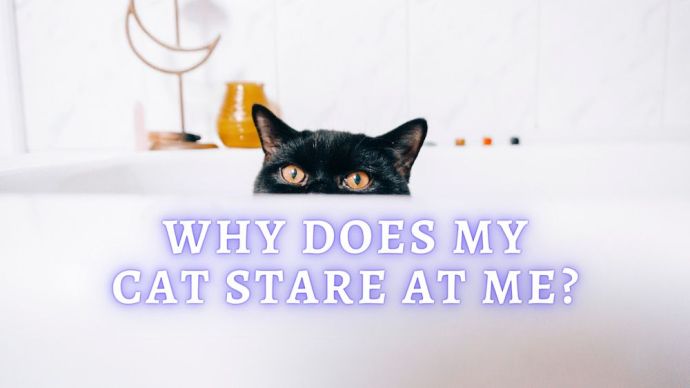 Cat Care Why Does My Cat Stare At Me? Cats Behavior and Body Language Explanation
Cat Care Why Does My Cat Stare At Me? Cats Behavior and Body Language Explanation - 201
- 0
 Cat Care Why Does My Cat Attack My Legs? 10 Reasons Why and What To Do About It (Vet-Approved Advice)
Cat Care Why Does My Cat Attack My Legs? 10 Reasons Why and What To Do About It (Vet-Approved Advice) - 46013
- 21
 Cat Care How to Get an Aggressive Cat Into a Carrier? 6 Methods to Get a Cat Into a Carrier
Cat Care How to Get an Aggressive Cat Into a Carrier? 6 Methods to Get a Cat Into a Carrier - 1602
- 0
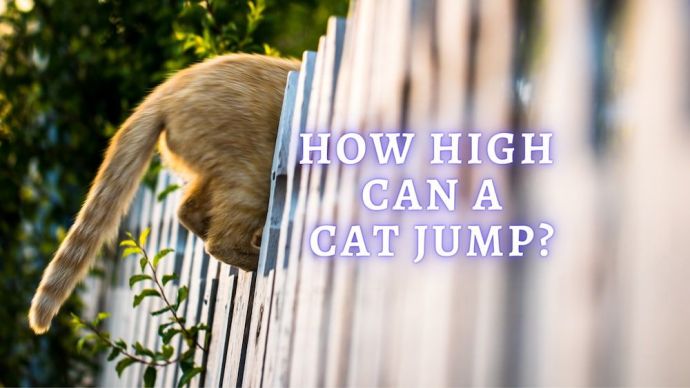 Cat Care How High Can Cats Jump? All You Wanted to Know About Cats Jumping Abilities
Cat Care How High Can Cats Jump? All You Wanted to Know About Cats Jumping Abilities - 353
- 0
 Cat Care Why Does My Cat Attack My Legs? 10 Reasons Why and What To Do About It (Vet-Approved Advice)
Cat Care Why Does My Cat Attack My Legs? 10 Reasons Why and What To Do About It (Vet-Approved Advice) - 46013
- 21
 Cat Veterinary Tips Cat Stomach Gurgling: Vet Advice on Why is Your Cat Stomach Gurgling?
Cat Veterinary Tips Cat Stomach Gurgling: Vet Advice on Why is Your Cat Stomach Gurgling? - 36469
- 4
 Cat Veterinary Tips My Cat Lost its Voice: Can Cats get Laryngitis? (Vet Advice)
Cat Veterinary Tips My Cat Lost its Voice: Can Cats get Laryngitis? (Vet Advice) - 23554
- 13









